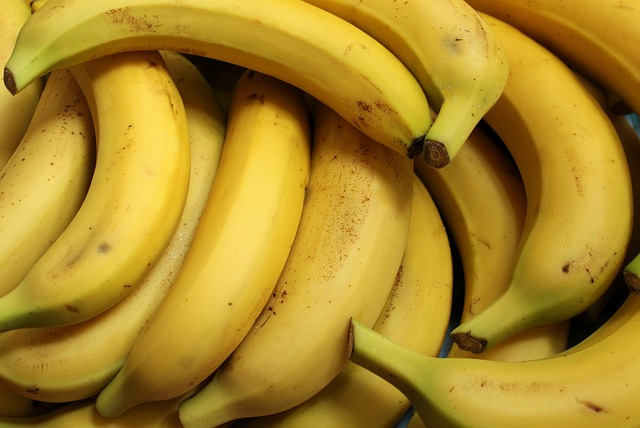Bananas are one of the most popular fruit, enjoyed by millions of people around the world for their sweetness and nutritional benefits. However, there’s a surprising fact about bananas that you may not know: bananas are radioactive (technically speaking).
The Radioactive Isotope in Bananas
The decay of certain elements is responsible for the occurrence of radioactivity. In the case of bananas, it is the presence of a particular type of potassium isotope, known as K-40. Despite comprising only a small fraction of the atoms found in potassium, K-40 is capable of undergoing spontaneous decay. This leads to the emission of beta and gamma radiation.
Not Much to Worry About
But before you start worrying about the dangers of eating bananas, it’s important to know that the amount of radiation in one banana is so small that it’s harmless to humans. In fact, the human body always stores roughly 16 mg of K-40. This technically makes us 280 times more radioactive than the average banana. A truckload of bananas has been known to set off radiation detectors designed to sniff out nuclear weapons. However, this is more of a curiosity than a cause for concern.
Radioactivity in Other Food
Further research has revealed that the amount of radiation present in bananas is not unique to the fruit. In fact, many common items, such as brazil nuts, potatoes, and even bricks, also contain radioactive isotopes. However, the amount of radiation present in bananas varies depending on the type of banana and where it was grown. Bananas grown in areas with high levels of naturally occurring radiation, such as in parts of Brazil and India, have been found to be more radioactive than bananas grown in other regions.
Although bananas do introduce more of this radioactive isotope, the body keeps potassium in balance (or homeostasis), and your metabolism excretes any excess potassium. It’s essential to remember that the amount of radiation present in bananas and other common items is typically much lower than the radiation levels we are exposed to in our everyday lives. In fact, the average person is exposed to more radiation from natural sources, such as the sun and rocks, than from bananas.
In Conclusion
Overall, the radioactivity present in bananas is a fascinating scientific fact that is often misunderstood. While it’s true that bananas contain radioactive isotopes, the amount of radiation is so small that it poses no threat to human health. So, enjoy your bananas without any fear of radiation, and remember that they are just one of many everyday items that contain naturally occurring radioactive isotopes.

